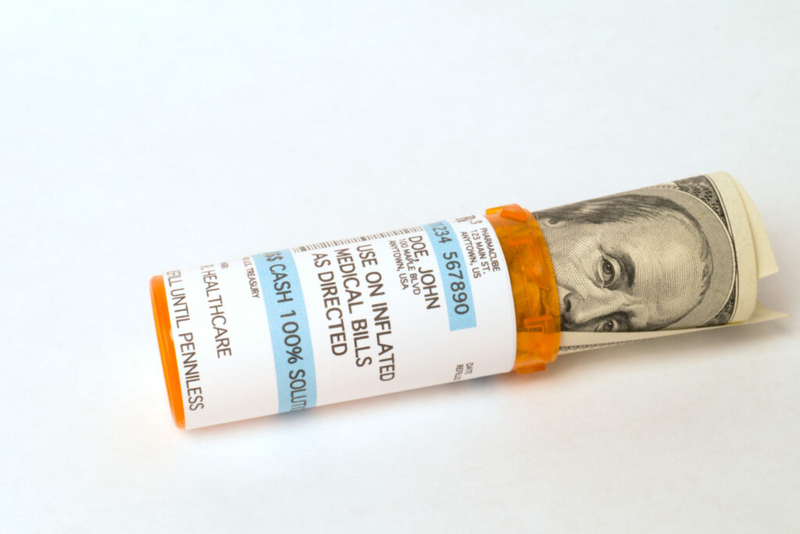Biden administration chooses first 10 drugs for Medicare price negotiations

Medicare can now negotiate lower prices for 10 common high-price drugs, cutting out-of-pocket costs for an estimated 9 million seniors and saving taxpayers billions, the Biden administration said Tuesday.
Medicare will begin this year to negotiate with the manufacturers of popular medications used to treat blood clots, diabetes, heart disease, rheumatoid arthritis, chronic kidney disease, psoriasis, blood cancers, Crohn’s disease and ulcerative colitis.
Enrollees will begin to see lower prices in 2026.
The prescription drug negotiations are a result of last year’s Inflation Reduction Act, a massive spending package that contained measures to reduce prescription drug prices, subsidize climate change reduction technology and adjust the corporate tax rate.
“For far too long, Americans have paid more for prescription drugs than any major economy. And while the pharmaceutical industry makes record profits, millions of Americans are forced to choose between paying for medications they need to live or paying for food, rent, and other basic necessities. Those days are ending,” President Joe Biden said in a statement Tuesday.
About 9 million enrollees in Medicare’s Part D prescription drug coverage program spent $3.4 billion out of pocket in 2022 on the 10 drugs selected for negotiation, according to a report released Tuesday by the U.S. Department of Health and Human Services.
The 10 drugs are: Eliquis, Enbrel, Entresto, Farxiga, Imbruvica, Januvia, Jardiance, multiple Fiasp and NovoLog insulin products, Stelara and Xarelto.
Democrats hailed the announcement of the selected drugs. The party held majorities in both the House and Senate when Congress passed the Inflation Reduction Act along party lines in August 2022.
“For years politicians promised to take on the big drug companies and empower Medicare to negotiate lower drug prices for consumers. With the Inflation Reduction Act Democrats have delivered. Soon millions of Americans will see lower prices on some of the most expensive and widely used prescription drugs,” Senate Majority Leader Chuck Schumer of New York said in a statement Tuesday.
Sen. Jon Tester, a Montana Democrat, said in a statement that his constituents “should never have to make the choice between life-saving medication or putting food on the table.”
“I am proud to have stood tough against large pharmaceutical corporations and successfully demand that they stop unnecessarily jacking up prices on folks across the state. Montanans sent me to Washington to deliver results, and I will continue to take on anyone to lower costs,” he said.
Of the nearly 66 million Americans enrolled in Medicare, 52 million are enrolled in the Part D prescription drug coverage plan, according to the Centers for Medicare and Medicaid Services enrollment dashboard.
The Inflation Reduction Act also made common adult vaccines, including shingles and TDAP, free for certain Medicare enrollees. Monthly insulin costs for Medicare enrollees were also reduced to $35 for Part D beneficiaries as part of the IRA, and beginning in 2025 annual out-of-pocket prescription drug costs will be capped at $2,000.
The law’s prescription drug provisions, including the government’s new ability to negotiate what it pays for certain drugs, is expected to reduce the federal deficit by $129 billion by 2031, according to a Congressional Budget Office analysis.
The government will choose 15 additional Part D-covered drugs in 2025 to negotiate lower prices beginning in 2027. Several more Part D and Part B drugs will be phased in for negotiations through 2029.
PhRMA, a trade group representing companies in the pharmaceutical industry, is against the Medicare negotiations, according to a statement released Tuesday.
“Giving a single government agency the power to arbitrarily set the price of medicines with little accountability, oversight or input from patients and their doctors will have significant negative consequences long after this administration is gone,” PhRMA President and CEO Stephen J. Ubl said in the written statement. “And insurance companies and their PBMs may further restrict access to medicines through increased utilization management, higher copays and more restrictive formularies.”
The Maryland Prescription Drug Affordability Board is also tasked with evaluating prescription drugs to see which ones could be negotiated for lower costs that would affect all Marylanders, not just for Medicare recipients.
The board’s executive director, Andrew York, said in an email that it’s not yet clear how the federal Medicare negotiations will play into the board’s evaluations.
“This information will certainly be included in any information that is provided to the board,” York said. “But, I’m not sure that it would receive any special consideration compared to any other information. The board may decide to give this information added importance, but that’s something that they would discuss and decide on in an open meeting.”
York said that the Centers for Medicare and Medicaid Services and the drug price negotiations “very much supports and complements our goal of lowering drug prices for Marylanders.”
“CMS’s work is essential because they are helping older Marylanders that have Medicare coverage. This is an important group that is primarily helped through Medicare at the federal level,” York said in an email. There are currently 1.1 million Marylanders enrolled in Medicare, according to federal data.
Vincent DeMarco, President of the Maryland Health Care for All! Coalition, said that the Medicare negotiations can provide a “good model” for Maryland’s drug affordability board and other state boards tasked with lowering prescription drug prices.
“It’s a great step for Marylanders on Medicare,” he said.





 Creative Commons Attribution
Creative Commons Attribution